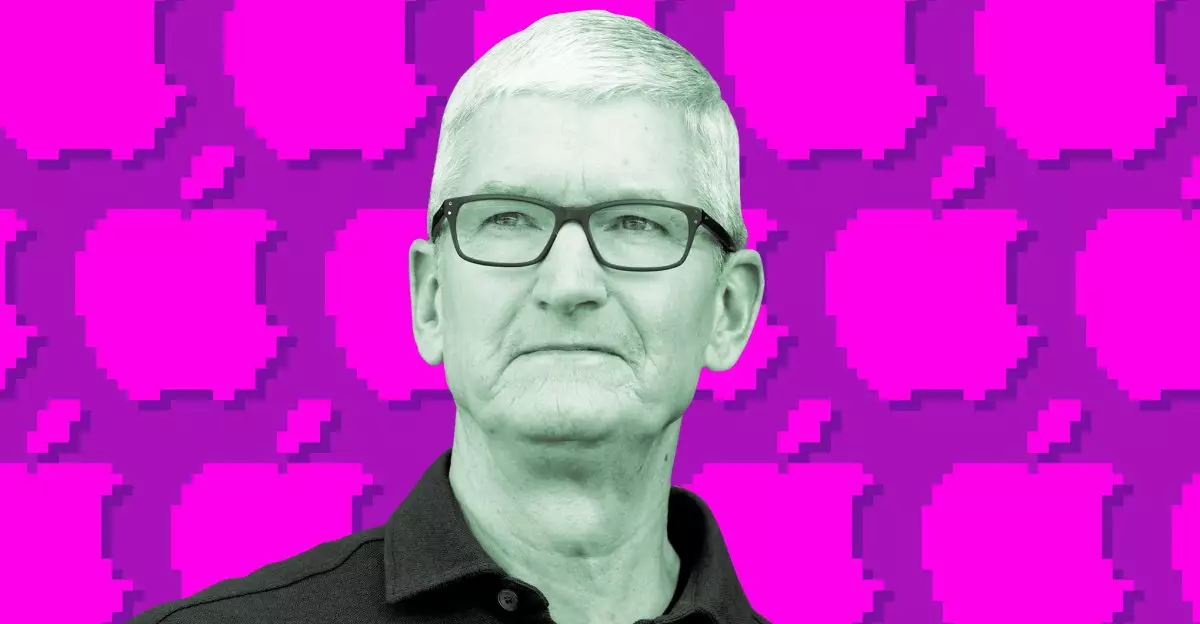In a rare move, Apple’s CEO Tim Cook addressed employees directly, emphasizing that artificial intelligence (AI) represents a transformative wave comparable to the advent of the internet and smartphones. His address signals a strategic pivot, acknowledging that while Apple has been cautious and slow to introduce AI-driven features, the company recognizes that it must accelerate its efforts to remain competitive. Cook’s message was not just motivational but also a declaration of intent: Apple plans to seize AI’s vast potential and establish itself as a leader rather than merely a follower.
This stance underscores a critical shift within Apple’s philosophical approach to innovation. Historically, Apple has been conservative, preferring to perfect existing technologies before releasing them to market. However, Cook’s remarks suggest that the company now perceives the AI revolution as a moment where hesitation could mean missing out on defining the future of technology. His confident language — describing the AI revolution as “as big or bigger” than past technological milestones — indicates a desire to reposition Apple squarely in the center of the emerging AI landscape.
Addressing Past Setbacks and Embracing a New Architectural Vision
Despite Cook’s optimistic outlook, Apple’s AI journey has faced tangible hurdles. The delay of the planned AI update for Siri is a case in point. Originally envisioned as a hybrid system combining traditional logic with large language models (LLMs), the project struggled to meet Apple’s high standards for user experience and performance. Software chief Craig Federighi revealed that the initial approach was abandoned because it didn’t deliver the “Apple quality” users expect.
This honesty about internal challenges reflects a mature understanding that innovation involves iteration and risk. Apple’s decision to overhaul its AI architecture indicates a strategic resolve to do better. Moving away from hybrid models to entirely new systems shows an acknowledgment that incremental improvements are insufficient in the rapidly evolving AI domain. The goal is to develop scalable, reliable, and privacy-conscious AI solutions that can redefine user interaction across Apple’s ecosystem.
However, Apple’s talent pool has reportedly suffered from industry-wide competition, especially as competitors like Meta aggressively hire AI experts. This talent drain could hamper Apple’s ability to lead in cutting-edge AI development unless the company accelerates its recruitment and internal training efforts. It’s a stark reminder that in the race for AI dominance, human capital is just as vital as technological innovation.
The Cultural and Competitive Implications of Apple’s AI Ambitions
Tim Cook’s fiery declaration about AI’s importance hints at a broader cultural transformation within Apple. Historically, Apple’s reputation has been built on refining consumer experiences rather than pioneering new paradigms. But now, there’s a palpable sense that Apple must rewrite its narrative, pushing past its “early adopter” hesitation and embracing the role of a pioneer.
This strategic emphasis could redefine Apple’s competitive positioning. While industry giants like Google and Microsoft have been more aggressive in integrating AI into their products, Apple’s cautious approach has sometimes been perceived as a gap between ambition and execution. Cook’s rallying cry aims to bridge this gap, instilling a sense of urgency and purpose among employees.
Ultimately, whether Apple’s renewed focus on AI will translate into groundbreaking consumer products remains uncertain. Yet, what’s clear is that Apple recognizes AI’s potential not just as a feature but as a foundational technology that could reshape frameworks of privacy, user interaction, and device capabilities. If executed with Apple’s signature attention to detail and user-centric design, this shift could indeed mark a historic chapter in the company’s storied legacy.

